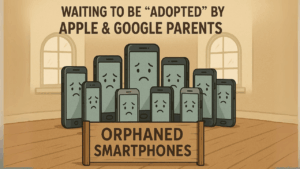How do you measure your level of tolerance? Is your cup half-full or half-empty? The divisions we see in America today often stem not only from differing ideologies but from how those ideologies are communicated. It’s not just the message; it’s the tone, the delivery, and the respect—or lack thereof—behind it.
We’ve all encountered that person—the coworker, the neighbor, the churchgoer, or even someone at a social event—whose attitude sets us on edge. Abrasive, dismissive, arrogant—these behaviors don’t build bridges; they erect walls. But here’s the thing: if we strip away the emotional reactions these interactions provoke, the substance of what’s being said often isn’t as offensive as it feels. The problem lies in how it’s said.
So how do we move past this? How do we foster an environment of cooperation in our workplaces, neighborhoods, nation, and world? Here are four essential steps:
1. Start With Yourself
- The only person you can truly control is you. You can’t dictate someone else’s tone, but you can influence it through your own behavior. Understand that persuasion begins with empathy—truly listening to the other side. Understanding doesn’t mean agreeing; it means opening the door to meaningful dialogue.
2. Fight With Civility, Not Hostility
- Sensitive topics are part of life, and people will fight passionately for what they believe in. That’s not just acceptable; it’s necessary for growth. But passion doesn’t justify disrespect. Without civility, debate devolves into chaos. Without respect, disagreements turn into war.
3. Resist the Mob Mentality
- The mob emboldens the individual, often bringing out the worst in us. Before joining the crowd, ask yourself: Is this how I would act alone? Would you approach the “other side” this way in a one-on-one conversation? True strength lies in standing firm while remaining fair, not in blending into the noise of the masses.
4. See Cohorts(fellow humans), Not Enemies
- Viewing someone with a different perspective as “the enemy” poisons the possibility of resolution. Conflict becomes about defeating rather than understanding, and both sides grow entrenched, adversarial, and ultimately belligerent. Progress comes from seeing others as people, not enemies.
The Bottom Line
The spirit of tolerance isn’t about abandoning your beliefs or conceding to the other side—it’s about fostering respect, dialogue, and cooperation. America’s strength has always been its diversity of ideas, but that diversity only works when we can communicate without hostility.
So ask yourself: Are you part of the solution, or are you fueling the division? Tolerance doesn’t mean weakness—it means the courage to engage, listen, and build bridges in the face of disagreement. It’s time to rise above and lead by example.




